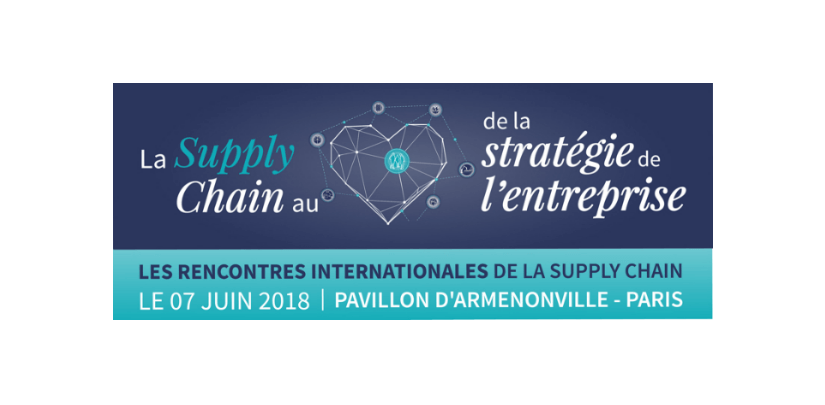On Thursday June 7, 2018, we attended the first edition of the Rencontres Internationales de la Supply Chain, organized by Aslog in the magnificent setting of the Pavillon d'Armenonville.
Like a great work of theater, the day was structured around 3 major acts, with a succession of speeches and round-table discussions.
Act I - Why is the Supply Chain becoming a major asset for companies in the face of uncertainty?
To open this first Act, Florent MENEGAUX, Michelin's Executive Managing Director, painted a picture in which Supply Chains are becoming increasingly complex and interactive, and in which uncertainty will continue to grow.
This uncertainty, which is rooted in the proliferation of offers and services and the multiplicity of distribution channels, must be transformed from a threat into an opportunity. Pierre MERCIER, Senior Partner and Managing Director, BCG, puts uncertainty as a competitive lever at the service of companies.
To achieve this, two avenues were presented. Firstly, to reduce uncertainty by speeding up or improving forecasting. Secondly, reduce the impact of uncertainty on the organization by making it flexible or resilient.
Finally, Major General Jean-Marc Bacquet will conclude this first act. Uncertainty, even if it generates doubt, must never lead to immobility. On the contrary, we must face up to it and turn it to our advantage. Anticipate as best you can, reduce uncertainty and, if possible, create more uncertainty for your competitors.
Act II - How does the Supply Chain contribute to value creation?
The second act of the day was opened by Laurent VENOT, General Manager Supply Chain & Finance Operations at L'Oréal. The growing efficiency of supply chains now opens the way to many new services, but also gives rise to others. How can we keep our customer promises in an omnichannel context and in saturated urban areas?
To meet these challenges, alliances between the company and its expert distribution partners are essential. It's no longer a question of simply entrusting delivery to one's service provider, but rather of sharing all information with one's partner.
The digitization of all or part of the distribution chain also represents a value-creating lever for the company. For some brands, this is even a prerequisite for any omnichannel sales approach, and is supported in particular by increasingly high-performance and innovative warehouse management tools.
In this way, the Supply Chain now integrates all the new technologies and innovations on the market to become much more than a backbone supporting distribution, but a heart which, like the human body, gives rhythm to all the company's activities.
After all, the supply chain will always be a people business.
Actes III - The Supply Chain at the heart of strategic business decisions
This human dimension could not be absent from these first International Supply Chain Meetings. Indeed, in a constantly evolving environment, the question is not what are the jobs of today, but rather what will be the jobs of tomorrow?
Several new professions have therefore been imagined, including that of the Data Alchemist. The Alchemist would be responsible for transmuting the multitude of primary data into high value-added data for the company.
In addition, as Supply Chain professions increasingly come into contact with Marketing professions, we should also see the emergence of logistics coordinator positions that are increasingly customer service oriented.
Supply Chain professions are changing, and it's our duty to project ourselves into the future. Although the future is uncertain, imagining these professions remains a necessity, but one that still allows us to foresee happy days ahead.

